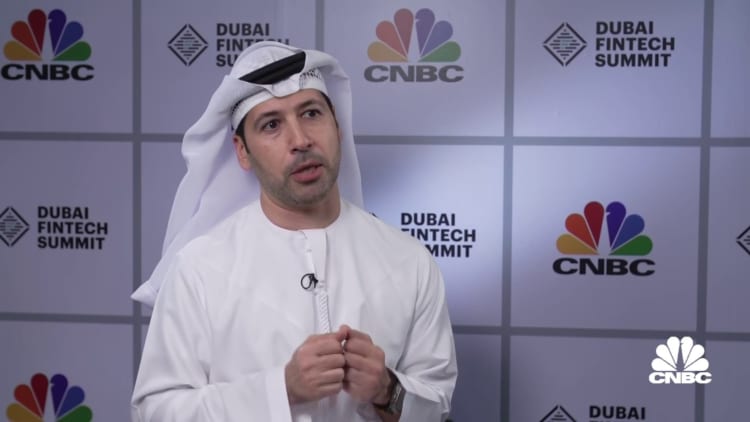[ad_1]
Ripple CEO Brad Garlinghouse speaks during the Milken Institute Global Conference in Beverly Hills, California, on Oct. 19, 2021.
Kyle Grillot | Bloomberg | Getty Images
Ripple will have spent $200 million defending itself against a lawsuit from the U.S. Securities and Exchange Commission by the time it is over, CEO Brad Garlinghouse told CNBC Monday.
“With the SEC, we will spend — this is the first time I’ve shared this publicly — by the time all’s said and done, we will have spent $200 million defending ourselves against a lawsuit, which from its very beginning, people were like, well, this doesn’t make a lot of sense,” Garlinghouse said during a fireside chat with CNBC’s Dan Murphy at the Dubai Fintech Summit.
The SEC accuses Ripple, CEO Brad Garlinghouse, and co-founder Chris Larsen of breaching U.S. securities laws by selling XRP (a cryptocurrency closely associated with Ripple) without first registering it with the regulator. Ripple contests the SEC’s allegations, maintaining the view that XRP should be considered a digital currency rather than a security.
Ripple isn’t the only company the SEC has pursued enforcement action against. The watchdog required Kraken, a crypto exchange, to stop offering its so-called staking service that offers users interest-like yields on their tokens after settling charges that it sold unregistered securities.

Meanwhile, the regulator has also notified crypto exchange Coinbase that it plans to sue the company over alleged securities violations. The crypto industry has been up in arms about the actions taken by the SEC, with some figures warning it may force companies outside the U.S.
Much of what the SEC has done involves applying existing regulations to the crypto industry, which was formed several decades after the Howey Test — one of the key tests to determine whether something is a security or not.
Garlinghouse said Chairman Gary Gensler and other SEC officials have made statements in the past which contradict the regulator’s belief that XRP is a security.
“You have video footage of the chair of the SEC, as a professor at MIT, saying 75% of these digital assets are commodities,” he said. “And now he says they’re all securities because he’s the head of the SEC and he’s seeking power and he’s putting power ahead of sound policy to grow an economy in the United States.”
“We don’t comment on ongoing litigation,” an SEC spokesperson said via email, referring back to its December 2020 press release announcing the lawsuit.
In 2020, the U.S. Securities and Exchange Commission initiated a lawsuit against Ripple alleging the company and its executives illegally sold XRP, a cryptocurrency its founders created in 2012, to investors without first registering it as a security.
Ripple disputes the claim, saying the token should not be considered an investment contract and is used in its business to facilitate cross-border transactions between banks and other financial institutions.

[ad_2]
Source link
